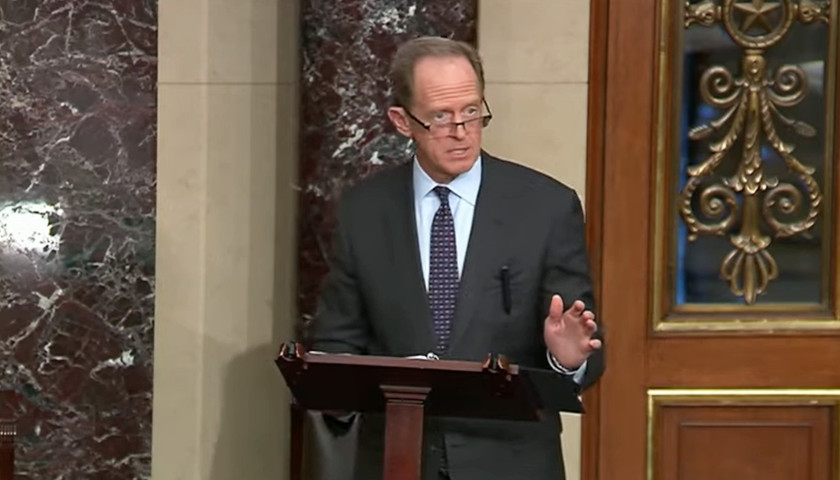On Wednesday, a U.S. Senate vote to proceed with veteran benefits legislation failed to receive the 60 votes needed for cloture, as Senator Pat Toomey (R-PA) and other fiscal conservatives noted the PACT Act would have permitted up to $400 billion to be spent on unrelated programs.
Earlier this week, Toomey urged Senate colleagues to accept his proposed amendment to keep the bill focused entirely on aiding those who served in the Armed Forces.
Fully titled the Honoring Our PACT Act (& Camp Lejeune Justice Act), the measure would expand healthcare benefits for veterans exposed to poisonous substances. The legislation came about partly in response to lawsuits filed beginning in the early 2010s after toxic water exposure caused illness and death for numerous personnel stationed at the Camp Lejeune Marine Corps base in Jacksonville, North Carolina. Benefits accorded through the act would apply to various other situations as well, including Agent Orange and radiation exposure.
House Veterans Affairs Committee Chairman Mark Takano (D-CA-41) said he expects 3.5 million veterans to receive additional aid as a result of the act which he is sponsoring. The congressional budget office estimates expenditures resulting from the bill’s enactment would total $278.5 billion over the next 10 years.
The bill treats the funds as “mandatory” rather than “discretionary.” The spending will therefore not be subject to spending limits.
In his floor remarks, Toomey explained that he does not contest the PACT Act’s description of its allocations as mandatory. He does however object to a provision in the Senate version of the measure that would shift $400 billion in planned veteran spending over the next decade out of the discretionary category and into the mandatory one. That, he said, will leave a gap which could get larded with $400 billion worth of items that have nothing to do with the care of ex-military personnel.
“There are caps on how much discretionary spending can occur in any given year,” he said. “By moving this big category of spending – this $400 billion – out of the discretionary category and putting it into mandatory, you create this big hole under the cap … . Now, when you create that big hole, guess what happens with that big hole: It gets filled with spending on who knows what.”
His proposal to reapply discretionary spending rules would guarantee that all allocations made through the PACT Act would pertain to veteran care. It would not lessen prospective funding for such care. He said such steps toward ensuring taxpayer money isn’t overspent are especially needed at a time when federal deficits and debt have exploded and inflation (which exorbitant government spending induces) is squeezing American families’ budgets.
“Our entire economy, American families – virtually all of them – are being wracked by out-of-control inflation,” he lamented. “Inflation is at a 40-year high. Forty years! I mean, roughly half of all Americans have never been alive with inflation this high. And there’s no avoiding it: It’s at the gas pump, it’s at the grocery store, it’s at the rent; it’s everywhere.”
Democrats blasted opponents of the present version of the bill.
“Our men & women in uniform serve this country, no matter their politics,” Rep. Susie Lee (D-NV-3) tweeted in response to the failed cloture vote. “The Senate can’t say the same. Put the politics aside. Pass the PACT Act.”
In her own Twitter post, Rep. Val Demmings (D-FL-10) called the Senate Republicans’ move “inexcusable partisanship.”
– – –
Bradley Vasoli is managing editor of The Pennsylvania Daily Star. Follow Brad on Twitter at @BVasoli. Email tips to [email protected].




